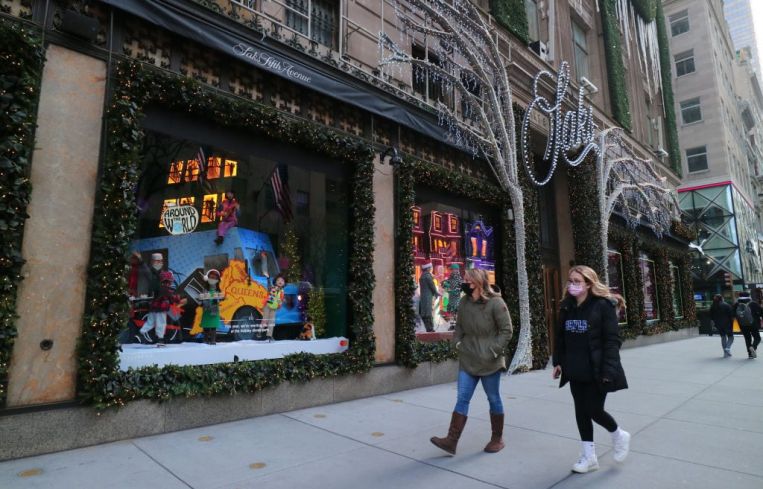Saks Fifth Avenue Owner Spinning Off E-Commerce Into Separate Entity
By Nicholas Rizzi March 5, 2021 1:48 pm
reprints
The owner of luxury retailer Saks Fifth Avenue plans to spin off the brand’s e-commerce side into a separate entity and has raised $500 million to do so.
Hudson’s Bay Company (HBC), which owns Saks, announced Friday that the iconic retailer will be split into e-commerce-focused company Saks and SFA, which will manage the company’s 40-store portfolio. The Wall Street Journal first reported the news.
As part of the split, private-equity firm Insight Partners — which is part of the $6 billion bid to buy data provider CoreLogic — invested $500 million to become a minority owner of the new e-commerce entity, valuing it at $2 billion. HBC will remain the sole operator of Saks’ brick-and-mortar side.
“Luxury e-commerce is poised for exponential growth, and as a standalone digital company with an existing strong position in luxury, Saks is primed to win significant market share,” Richard Baker, CEO of HBC, said in a statement. “With this move, we are redefining the luxury shopping ecosystem, supercharged by an enviable customer base, incomparable brand equity, long-standing relationships with top designers, and exquisite stores in top markets across North America.”
As part of the split, Saks CEO Marc Metrick will serve as CEO for the newly created e-commerce entity, and former Amazon executive Sebastian Gunningham will join its board of directors. Larry Bruce, who served as Saks’ director of stores, will serve as president of the retail SFA business, which will continue to accept online order returns.
Saks’ move comes as brick-and-mortar retail had its troubles amplified by the coronavirus pandemic, while e-commerce continued to rise.
Shoppers stuck at home spent $861.12 billion online in 2020, a 44 percent increase year-over-year, and online purchases made up 21.3 percent of last year’s total retail sales, a report from Digital Commerce 360 found. On Black Friday, typically the busiest shopping day of the year, online sales hit a record high, while traffic to brick-and-mortar stores more than halved compared to 2019.
Luxury retailers like Saks were slow to embrace online shopping early on, but the temporary store closures during the pandemic forced them to change their tune. Last year, online shares for luxury brands were worth $58 billion, an increase from the $39 billion in 2019, The New York Times reported

![Spanish-language social distancing safety sticker on a concrete footpath stating 'Espere aquí' [Wait here]](https://commercialobserver.com/wp-content/uploads/sites/3/2026/02/footprints-RF-GettyImages-1291244648-WEB.jpg?quality=80&w=355&h=285&crop=1)

